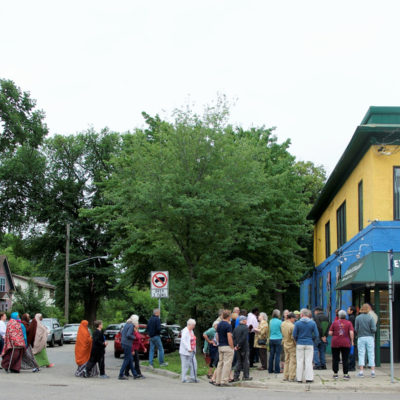Community Groups Rally to Support Vandalized Businesses
In the early morning of Wednesday, September 18, several businesses along Franklin Ave. were vandalized. Two weeks later, the Hennepin County Attorney’s Office charged a 36 year old man with bias in connection to this vandalism. A principle core to our cooperative identity is concern for community. This violence has triggered fear and anxiety in…


